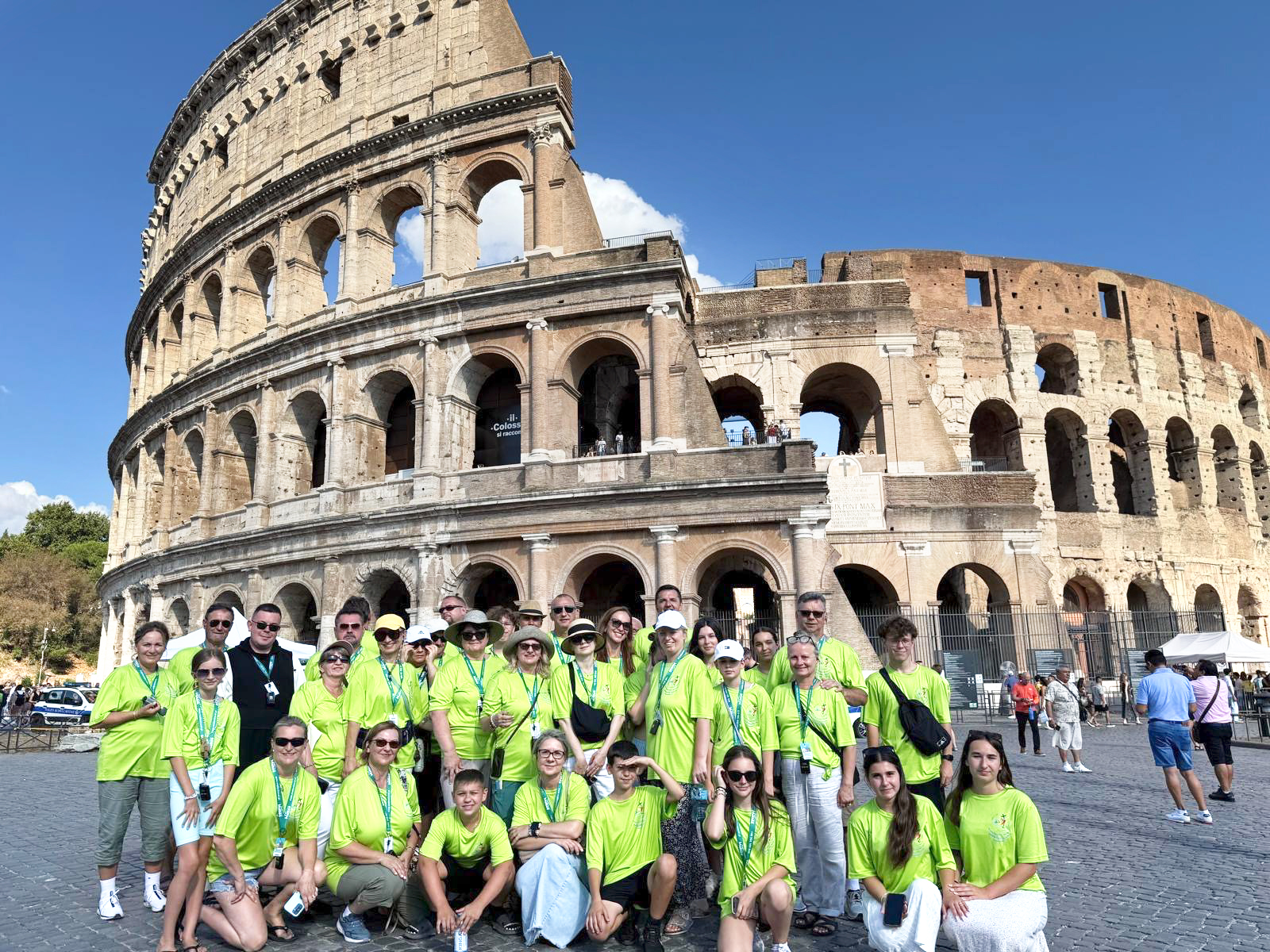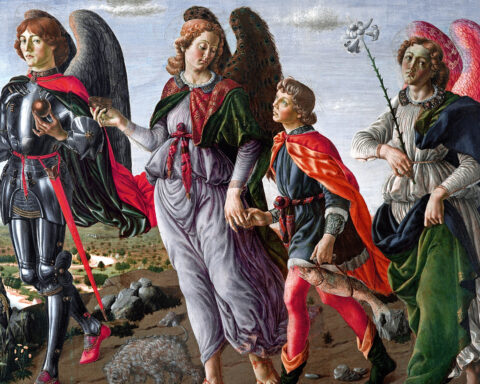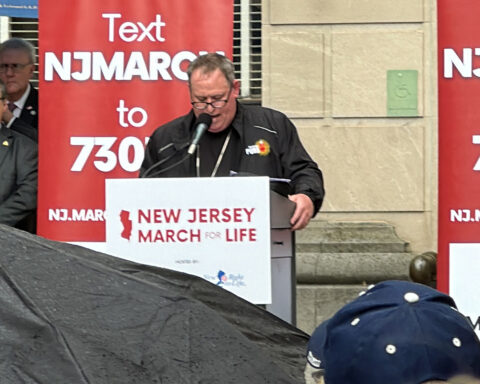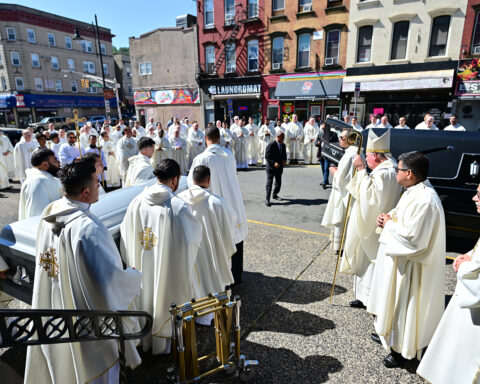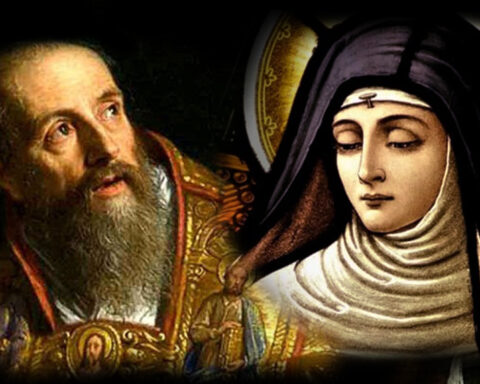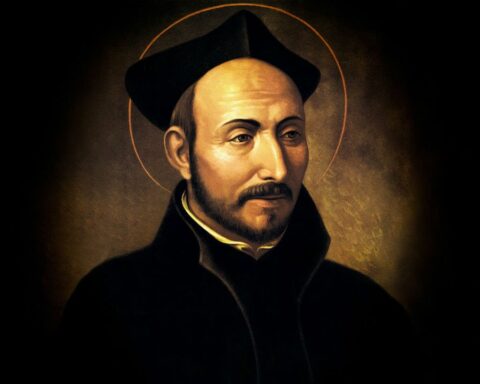“All things came to be through him, and without him nothing came to be. What came to be through him was life, and this life was the light of the human race; the light shines in the darkness and the darkness has not overcome it.” Jn. 1:3–5
It could be described as “one of those days.” On this past Tuesday, Aug. 12, I received a letter from Archbishop Timothy Broglio, president of the United States Conference of Catholic Bishops (USCCB). The letter was sent to every bishop and every diocese in the United States. Here is the opening paragraph:
“It is with great pastoral concern for the ongoing crisis in Gaza that I write to you today. Our Church mourns the terrible suffering of Christians and of other innocent victims of violence in Gaza and the other surrounding areas who are struggling to survive, protect their children, and live with dignity in dire conditions. The Holy Father continues to call for a ceasefire and for aid to enter the territory, noting with great sorrow that “Gaza is starving.”
I asked our vicar general, Msgr. Mark Condon, to forward Archbishop Broglio’s letter to our pastors, inviting them, sometime in the coming weeks, if possible, to have a voluntary special collection for “Gaza Relief.” We noted, in forwarding the letter to pastors, that “this is a particularly sensitive time for a special collection since many parishes are still receiving missionaries preaching in support of the Missionary Co-Op.” For anyone who would like to learn more about the efforts of the Church to help those who are suffering in Gaza and the surrounding areas and who may be interested in making a donation, you can go to the website of the Catholic Near East Welfare Association or Catholic Relief Services.
In the past few months, I have learned that, here in the United States and the West, in the “mainstream media”, we are not hearing many details about the sad realities in Gaza. I am aware that there are many voices, and I have had conversations with some who believe that the Church should be doing more to advocate on behalf of innocent victims of war and violence. All of this has been in my thoughts and prayers in recent weeks.
I describe this past Tuesday as “one of those days,” because I wonder if it is more than chance or coincidence that led me, on Tuesday afternoon, to see a story on Catholic News Agency, with the title: “Archdiocese of Port-au-Prince denounces the collapse of humanity in Haitian society.” Here is the first paragraph of the article:
“The Archdiocese of Port-au-Prince denounced the ‘collapse of humanity’ in Haitian society, “where the unthinkable has become commonplace,” in response to the kidnapping of nine people from an orphanage on the outskirts of the capital on Aug. 3.”
Later, that same Tuesday, I happened to be watching “The News Hour” on PBS and saw a story on how the civil war in Sudan is intensifying, leading to starvation. The report began by saying:
“This week, at least 40 people have been killed by Sudan’s paramilitary Rapid Support Forces as fighting intensified in the Western Darfur region. Over the last nearly 2.5 years, a brutal civil war between the paramilitary RSF and the Sudanese Armed Forces has killed tens of thousands of people and created the largest hunger and displacement crisis in the world. Over 14 million people, more than a quarter of the population, have been displaced within and outside of Sudan, and the city El Fasher in Darfur faces famine and has for over a year.”
As distant witnesses to such profound human suffering, we often say that we can “get depressed” by watching, reading, or listening to the news. All of this disturbing news was on my mind and in my prayer the next day, when I had the opportunity to celebrate Mass and participate in a Eucharistic Procession at the “National Blue Army Shrine of Our Lady of Fatima” in Asbury, N.J. It was also on my mind as I celebrated Mass the next morning, on the Feast of St. Maximilian Kolbe, with the cloistered Carmelite Sisters at their Monastery in Morristown.
On the evening of Thursday, Aug. 14, I received and read an article sent to me by the author, Kevin Wells. It was a book by Kevin Wells, “Priest and Beggar,” that first introduced me to Venerable Msgr. Aloysius Schwartz, who founded the Sisters of Mary. In August of last year, I had the opportunity to travel with Kevin and a small group to visit a “Girls Town” orphanage and school in Chalco, Mexico, established by “Fr. Al” and the Sisters of Mary in 1991.
Kevin’s latest story is about the work of the Sisters of Mary in Tanzania, in Dar es Salaam and a place called Ukara Island. The article states: “In total, the Sisters of Mary operate 16 Boystown and Girlstown communities in six countries, where each day more than 380 sisters rise early in the morning to mother poor children back to the joy of life through holistic care: education, Mass, prayer and the sacraments, emotional support, vocational training, food, clothing and any other need.” You can find the article here.
Reading Kevin’s article, after having heard and been saddened by so much “bad news,” was a reminder that “the light shines in the darkness, and the darkness has not overcome it.” The Church can always “do better,” but the reality is that in most of the “darkest” places in the world, groups like CRS and CNEWA, the Sisters of Mary and countless other religious communities are “there,” like St. Mother Teresa of Calcutta, stiving to “Come, be my light,” bringing the light of God’s Love, compassion and healing, where there is so much suffering and despair.
Asking your indulgence, there is one more thing that I read that I would like to share with you. On Friday morning, Aug. 15, the Feast of the Assumption, I read the homily given by Pope Leo XIV at Mass at Castel Gondolfo earlier that morning. I encourage you to read the full (brief) homily.
There was a part of the homily when I felt like he was speaking directly to me, offering Hope, and words that I needed to hear:
And so, dear brothers and sisters, the Resurrection enters our world even today. The words and choices of death may seem to prevail, but the life of God breaks through our despair through concrete experiences of fraternity and new gestures of solidarity. Prior to being our final destiny, the Resurrection transforms — in soul and body — our dwelling on earth. Mary’s song, Magnificat, strengthens the hope of the humble, the hungry, the faithful servants of God. These are the men and women of the Beatitudes who, even in tribulation, already see the invisible: the mighty cast down from their thrones, the rich sent away empty, the promises of God fulfilled. Such experiences should be found in every Christian community. They may seem impossible, but God’s Word continues to be brought to light. When bonds are born, with which we confront evil with good and death with life, we see that nothing is impossible with God (cf. Lk 1:37).
The Holy Father challenges us to be instruments of fraternity and solidarity in areas where we can make a difference. Our own prayer, attitudes, and generosity help to strengthen bonds of healing and peace. In this past Sunday’s gospel, Jesus expressed His mission in terms that can almost frighten upon first hearing, “I have come to set the earth on fire, and how I wish it were already blazing!” (Luke 12:49). The Lord’s fire clarifies and guides. Looking around the world, we see many fires burning that are not of divine origin. We, however, are filled with the fire of the Holy Spirit. Let us pray together that we will set alight the fire of God’s love that burns away hatred and violence with the light of our compassion and hope, bringing God’s consolation to the suffering wherever we are able.


